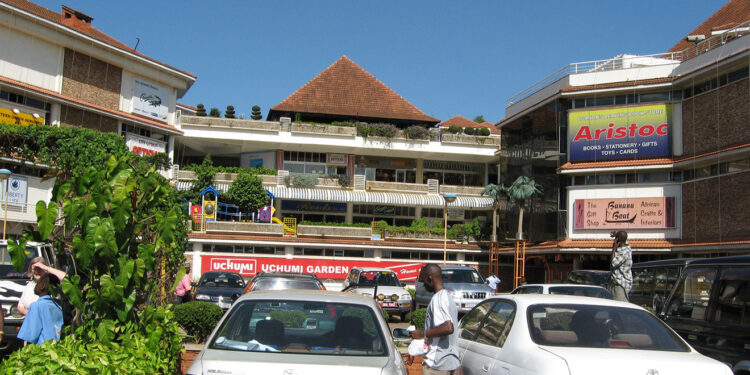If anything serves as a metaphor for the economic malaise in whose throes Uganda appears to be convulsing, it is a mega mall that on weekends cuts a forlorn figure in the heart of Kampala’s central business district (CBD). Garden City’s expansive buildings and parking space might not have lost all of their sparkle, but the mega mall maintains a ghostly presence on weekends. It has for a protracted period, to be honest.
It is not just customers who have voted with their feet. Reduced foot traffic has forced the hand of many brands. Cadia, a retail clothing store that is perhaps barely known by Kampalans, is the latest to close shop. Scant consolation is to be found in the fact that it is in esteemed company. Long before Standard Chartered Bank announced in 2024 a divestment that will soon see it sell its retail (personal accounts) and wealth management divisions, the lender upped and left Garden City.
As a matter of fact, for every MultiChoice that left after the pandemic, shortly before beginning takeover talks with Canal +, there is a Cafe Pap that closed shop at Garden City pre-2020. While no reasons were offered, it certainly could not have been because the mega mall was a mishmash of renovation and demolition. No. This place, designed to make the most of the timeless elegance of marble, is still neatly kept to date. If any accusation can be labelled against its neat image, it is that the mega mall serves only a lust for consumption and convenience. It, therefore, brings glitz, as well as distraction.
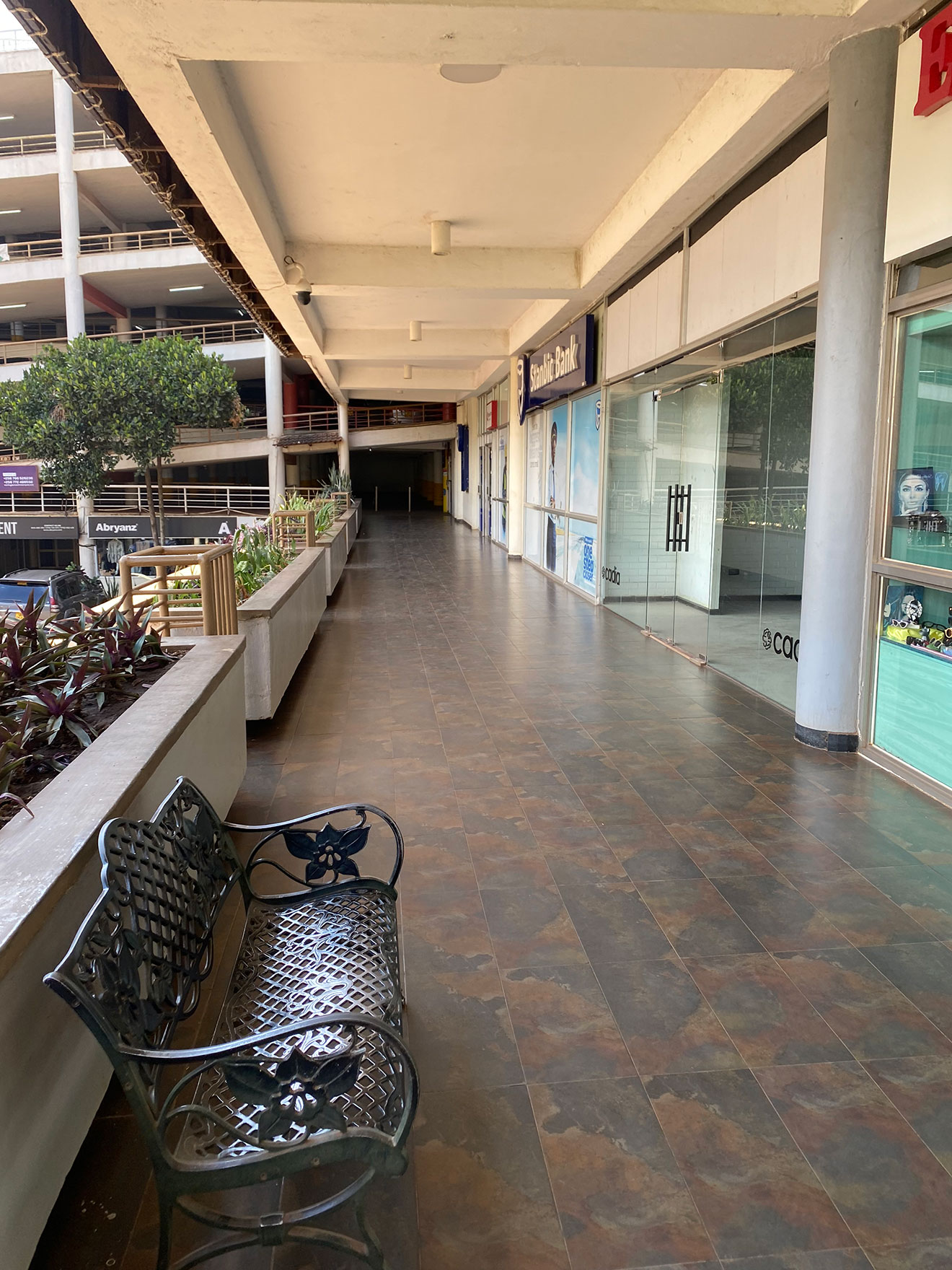
Increasingly, food has come to be seen as an out-and-out distraction. A 2017 study by researchers at Johns Hopkins University, whose findings were published in the journal Psychonomic Bulletin and Review, came to the conclusion that junk food images are almost twice as distracting as healthy food pictures. It is these human impulses—essentially an implicit bias for fatty, sugary foods—that informed Garden City’s decision to ring-fence the corner view of its second floor for a food court.
A motley crew of stewards from eateries, which held out the promise of serving food that is sophisticated without trying too hard, frenetically waved menus in the faces of customers that descended upon the food court. A Mexican dish would be washed down with a gin and tonic as one watched golfers grapple with Kitante course’s dogleg right par 4 that is designed to play uphill like a par 5.
That was then. The here and now is markedly different. The food court closed shop way before the pandemic reared its ugly head. The vast corner space of the second floor has now been repurposed to accommodate pupils learning the ropes of skating on selected days, weekends inclusive. They can be counted off the fingers of one hand.
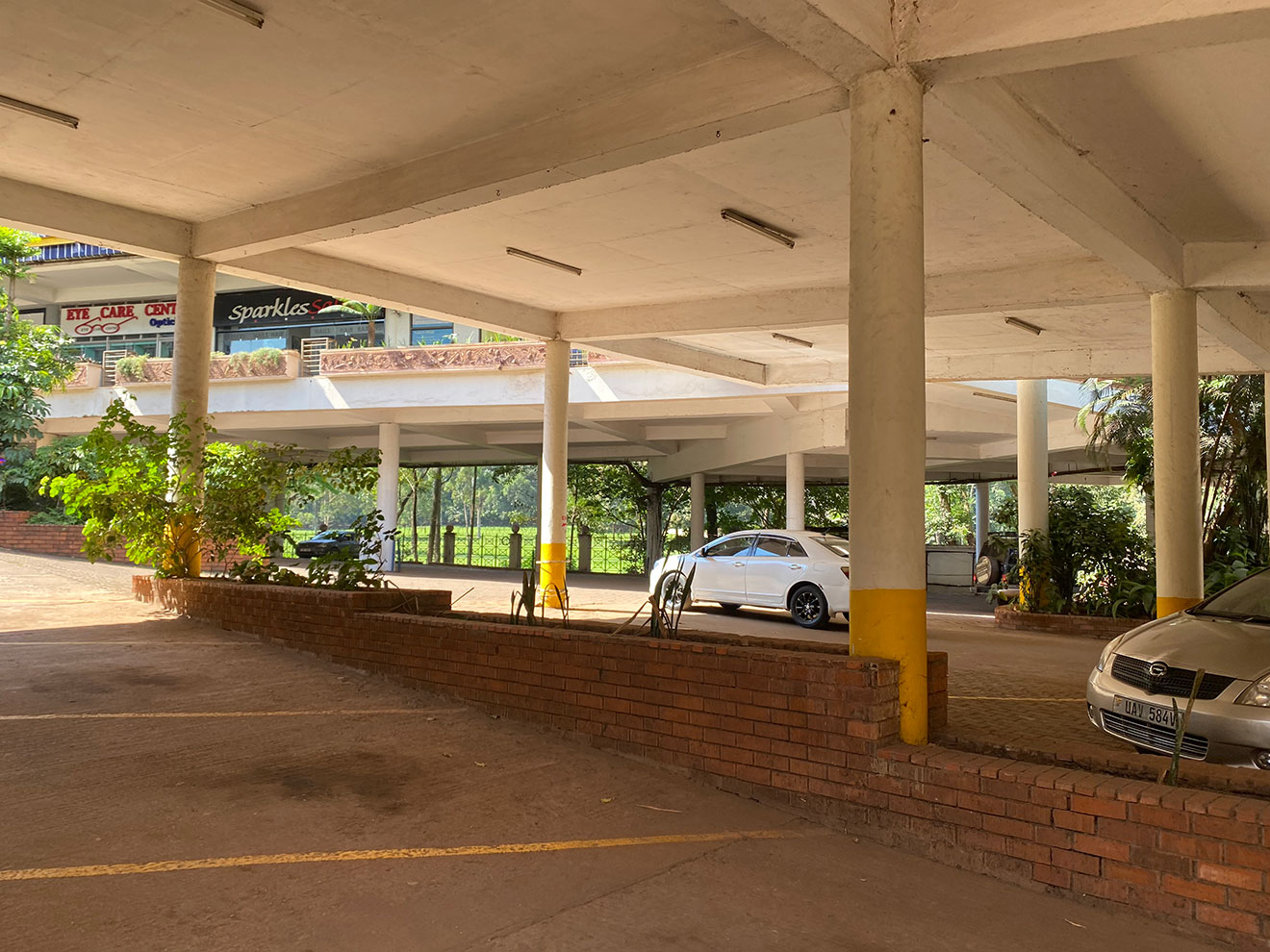
Empty Pockets
Anecdotes affirming that Uganda’s economy is in a rough place are, of course, not restricted to Garden City. Their phalanges stretch far and wide. In fact, one of the Opposition parties has made fixing the economy the centrepiece of its campaign ahead of the 2026 General Elections. It wants, the party adds with a theological sense of conviction, to put money in the pockets of all Ugandans.
“You say you want to protect our gains. You want to protect gains of poverty?
You want to protect gains of people suffering or what?” Nathan Nandala Mafabi, the flag-bearer for the Forum for Democratic Change (FDC) in the 2026 presidential poll, said on September 24 after being nominated by the Electoral Commission (EC).
A day before, on September 23, Yoweri Museveni, the incumbent cleared to attempt to extend his stay in power into a fifth decade, had said thus: “In this economy, the GDP of Uganda has doubled currently in the recent Kisanja from $34 billion to $66 billion. You have everything today that you lacked in the past: electricity, roads, telephones, manpower, the educated people, and peace. That’s why we are being flooded by many investors because they are looking for a peaceful and profitable area where to invest.”
There is every indication that as the Opposition candidates—seven of them—move to anchor their messaging on the claim that everything in Uganda remains in need of far-reaching reform, the incumbent will use numbers to take a methodical approach to his 2026 ambitions.
“Twelve years ago, only 32 per cent of the people were engaged in wealth creation. Sixty-eight per cent were outside and not engaged in the creation of wealth creation. I am glad that with the efforts we have done that figure has now gone down. By the last census, only 33 per cent were outside the money economy,” Museveni, 81, said on September 23 upon being nominated a presidential candidate.
Not Good Enough?
Critics, however, say any hard-won gains fall short of what is needed. One does not, they add, need to do a deep search for figures that cast an unvarnished light on the economy. In 2022, data from the country’s central bank showed that 60 per cent of Ugandans earn UGX600,000 per month. This, at any rate, is a paltry figure. Yet as well as “protecting the gains [made],” the ruling National Resistance Movement (NRM) party is talking about “taking a qualitative leap” as it looks to remain at the helm for the 2026-2031 term.
A Tenfold Growth Strategy, set in motion in 2023 when the country’s gross domestic product or GDP was US$50 billion, is unapologetically ambitious in setting a lofty target of reaching US$500 billion by 2040. The strategy’s central planks are, in a sense, reducible to the acronym ATMS—agro-industry; tourism; minerals development; as well as science, technology and innovation.
“This target,” Finance Minister Matia Kasaija disclosed in a ministry publication in June of 2025, “responds to a direct challenge from H.E [His Excellency] the President [Museveni] for managers of the economy to focus on attainment of a qualitative leap in their approach to economic management.”
The centre of gravity around which the challenge posed by the strategy coalesces is one that is unstinting in its demand that Ugandans become more innovative and more productive. At the recent 8th High-Level Economic Growth Forum, staged under the auspices of the country’s Finance Ministry, difficult realities intruded. The packaging and nudge of Ugandans to save and invest is intellectually dishonest, government policy wonks were told, not least because growth is an outcome; not a policy.
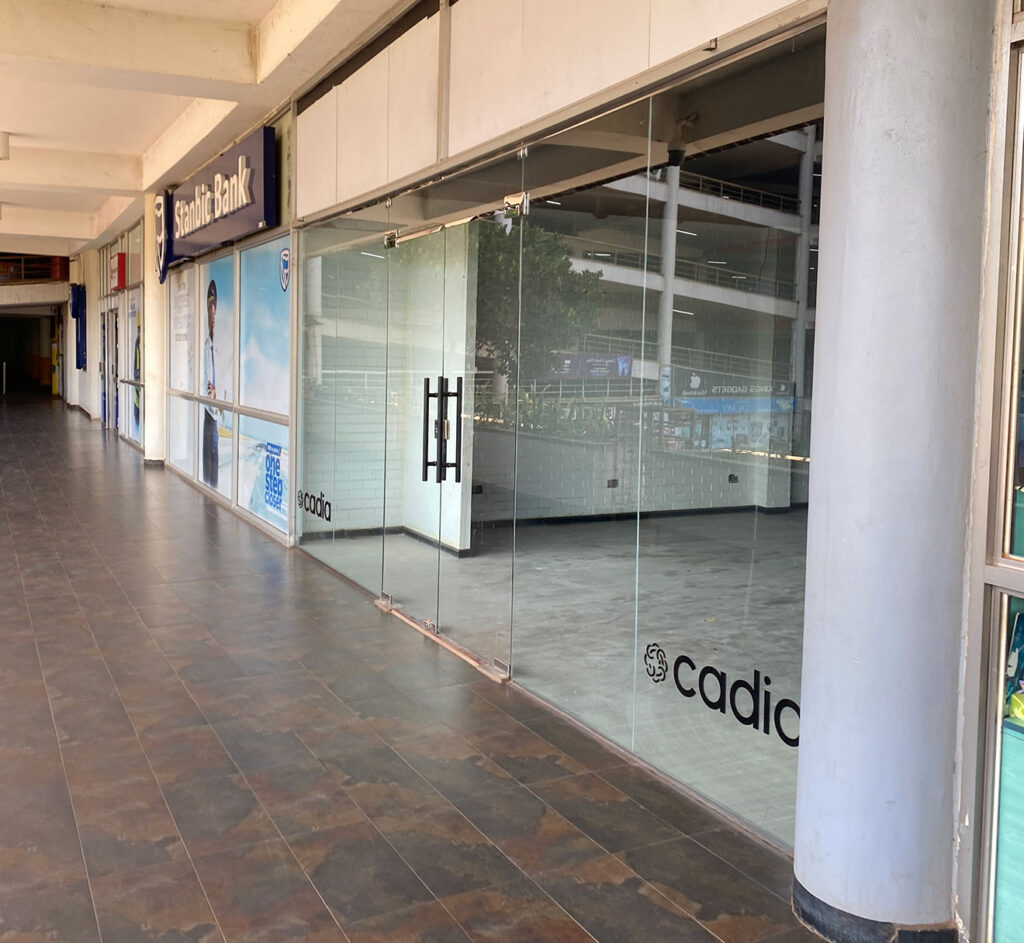 Reality Check
Reality Check
Stefan Dercon, a professor of economic policy at the Blavatnik School of Government and the Department of Economics at the University of Oxford, delivered a keynote that saw intellectual consensus swing sharply against the much-vaunted growth strategy. The Belgian-British economist, who is also the director of the Centre for the Study of African Economies, was vaguely uncomfortable with the idea of Ugandan bullishness. While “ambition is good”, he hastened to add that “nobody can be commanded to be active.” Above all, he strongly believed that Uganda’s policy wonks are making a catastrophic miscalculation.
“Start from the demand side. Demand will create supply. Supply will create demand,” he said, as if reading out of an Economics 101 manual to freshmen, adding, “Oil is important, but keep a cool head. You don’t have much.”
The Finance Ministry’s June 2025 publication on the Tenfold Growth Strategy captures the extent to which Uganda is ready to hedge its bets on oil and gas industrial development. The annual target has been set at US$5 billion, with first oil expected to arrive in the second-half of the fiscal year (FY) 2026/2027.
“Oil and gas has the potential to provide revenues to support productivity enhancement and competitiveness in other areas of the economy as well as to contribute to the country’s non-traditional economy,” the ministry’s document says of the so-called the New Economy, adding, “The downstream economic activities include oil refineries, petrochemical plants, distributors of petroleum products, natural gas distribution companies and retail outlets. This strategy focuses on unlocking the potential of the petrochemical industry without losing sight of the significant contribution expected from crude oil exports in closing the country’s infrastructure gaps.”
Tough Times
Like oil and gas, a great burden is on the shoulders of Ugandans following the recent significant cuts in development assistance. As Prof Dercon has warned, the cuts “will not be soon reversed.”
The shrinking external assistance combined with rising costs has left many Ugandan businesses struggling to contain deficits and teetering on the brink of insolvency. The taxman has also been left in a spot of bother, with guesstimates indicating that UGX30 billion per month in Pay As You Earn or PAYE collections has evaporated in the aftermath of the United States Agency for International Development (USAID) cutting off funding to certain programmes and projects. While the impact of the new policy changes is not lost upon Mafabi and the FDC, leakages attributable to corruption are what are thought to fashion a more devastating sledgehammer blow.
“We lose UGX10 trillion to corruption each year,” Mafabi pointed out after his nomination on September 24.
If some of this money instead ended up in the pockets of ordinary Ugandans, maybe the odd mochas and cappuccinos served at Cafe Pap or a pair of strappy black stilettos sold at Cadia would have kept the lights on. Ugandans, though, are poor in every sense of the word, and their leaders are to blame. Well, at least that is what the Opposition’s collective messaging ahead of the 2026 General Elections suggests. Indeed, Robert Kyagulanyi Sentamu, alias Bobi Wine, the Opposition leader from the National Unity Platform (NUP), used his speech after being nominated to vie for the presidency to speak to widespread impoverishment in the country. The status quo, he further noted, has filled Ugandans with inexpressible anguish and terror.
“For 40 long years, one man and a small group of relatives and friends have ruled our country on [sic] gunpoint,” he said of the Museveni administration, adding, “They have looted the nation and turned every institution of government into a tool of oppression. They have reduced the citizens of Uganda into slaves on their own land. They have turned our poverty into a weapon of control.”

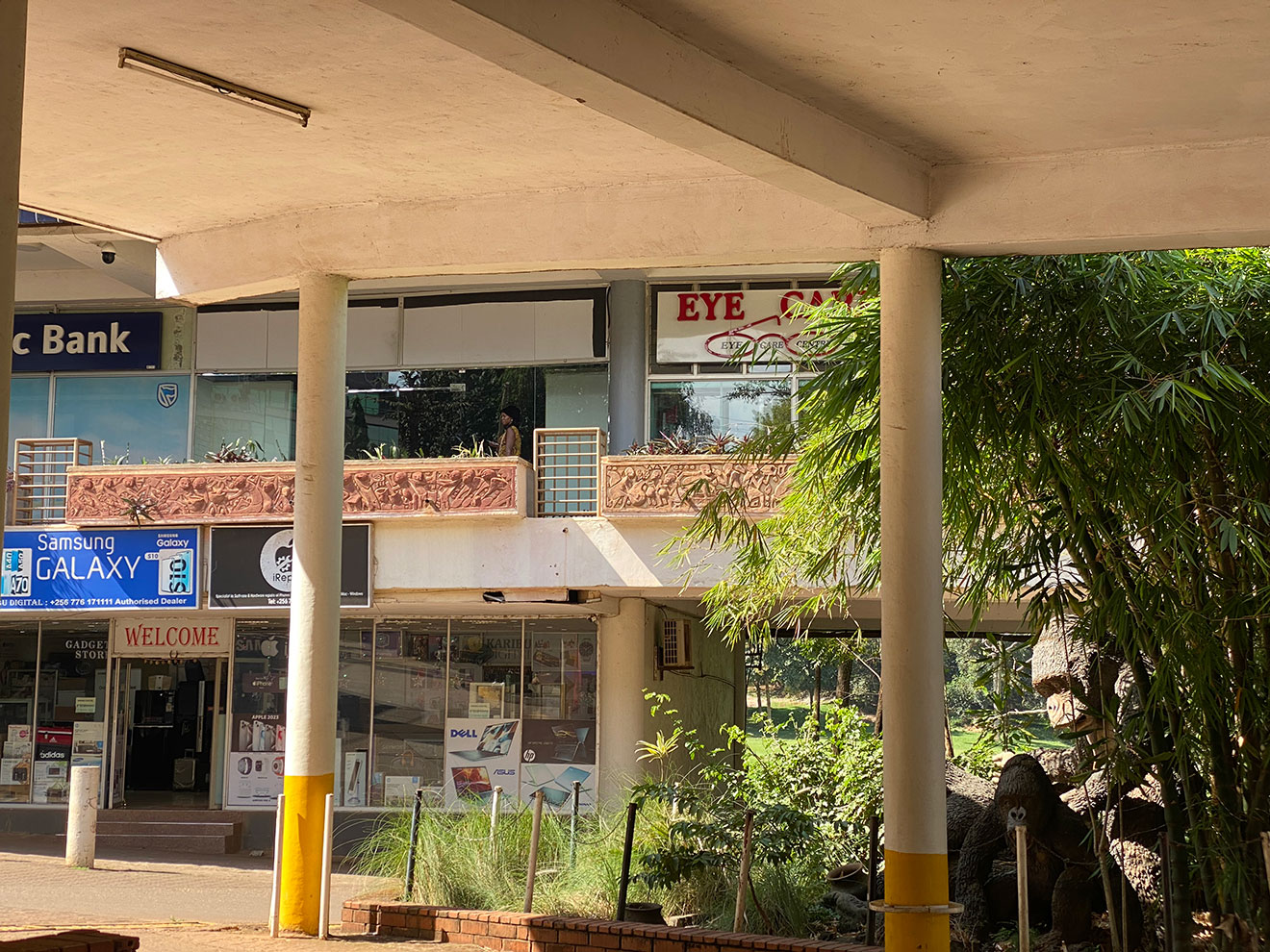 PDM To The Rescue?
PDM To The Rescue?
The poverty means that the spaces at Garden City vacated by Standard Chartered, MultiChoice, Cafe Pap and Cadia, to mention but four, remain unoccupied to date. While still a work in progress, Ramathan Ggoobi, the Secretary to the Treasury, says it is disingenuous to turn a blind eye to inroads made in alleviating poverty.
Speaking at a dialogue organised by the United Nations Conference on Trade and Development (UNCTAD) and the Geneva Office of the Friedrich-Ebert-Stiftung (FES) on September 24, Ggoobi, who is also the top accounting officer in the Finance Ministry, said it is no mean feat that the current poverty levels—16.1 per cent—marginally surpass the 2024 national target of 18.5 per cent. Even more remarkable, he purred, is the fact that poverty levels stood at 56.4 per cent in 1992.
“What is the secret? Uganda, starting in early 1990s, recognised that there are two reliable opportunity equalisers in life: education and financial inclusion,” he said, adding, “We are implementing a nationwide Parish Development Model (PDM) to provide grants to all households that are not welcome in banks. As at 15 September 2025, a total of 3.2 million households had received a grant of US$300 each to invest in a small agribusiness enterprise.”


